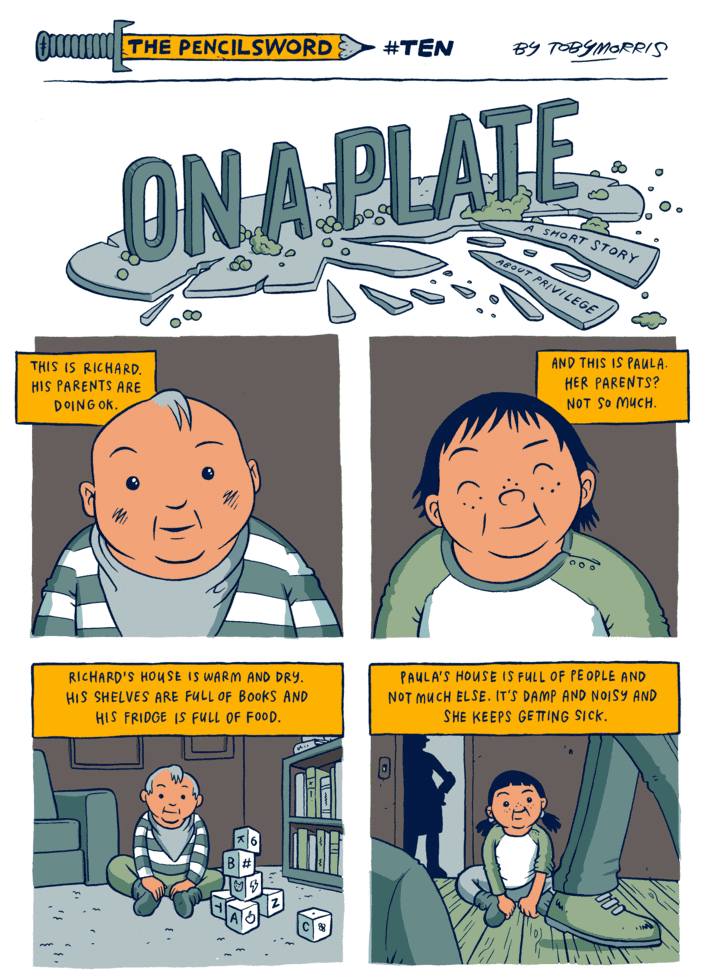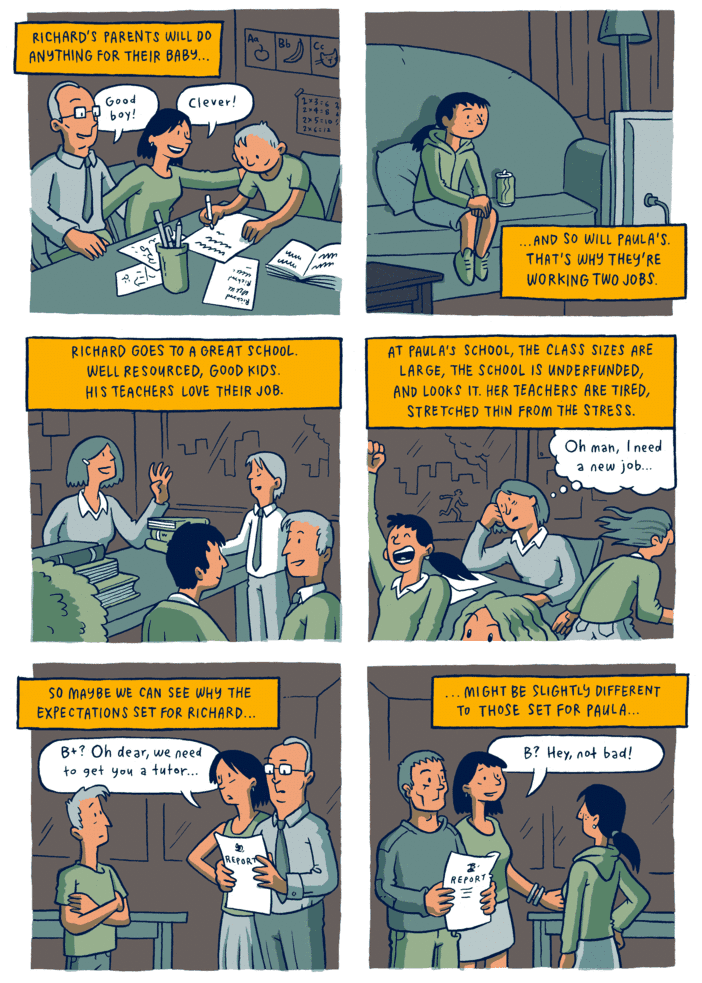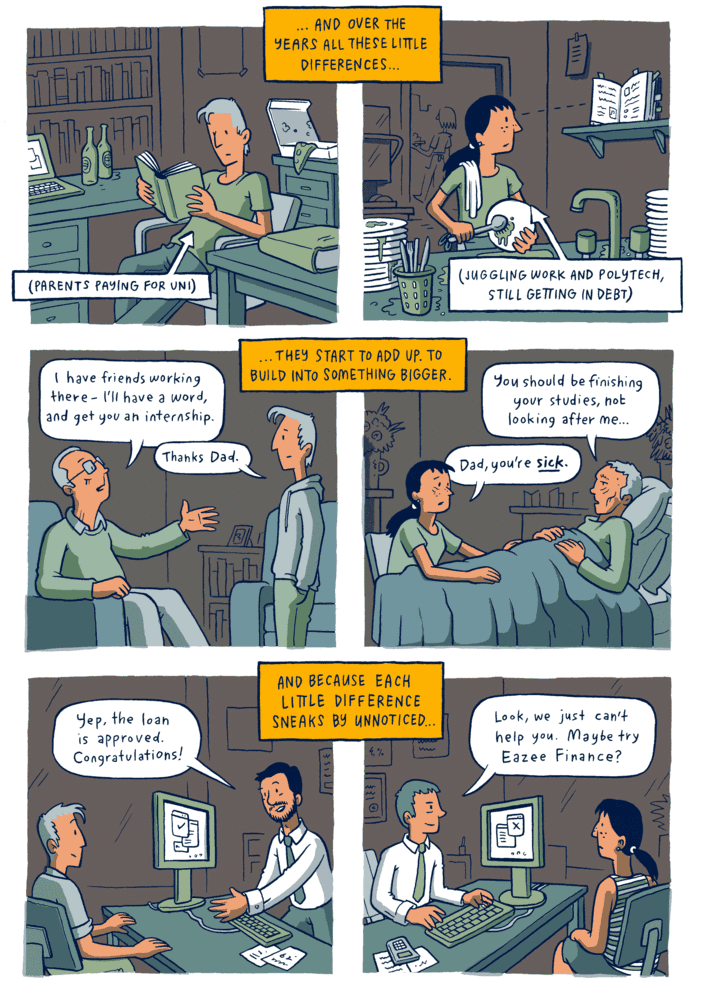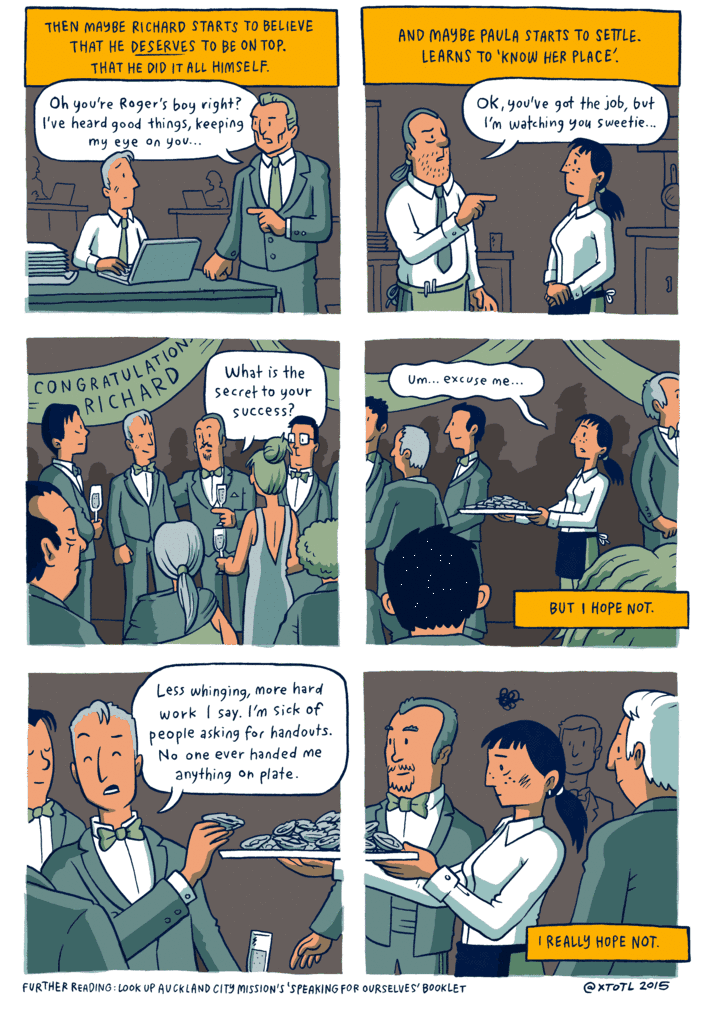- Too many old(er) white guys who made it (in the USA, usually), coming from ambitious (or at least supportive) families or that were classically trained as a child in a,b or c, are coming onto this thread claiming there isn't a problem. Which really means there wasn't a problem for them. See the problem? And please, most people here, I DO know enough of your back stories to know there never was or is a level playing field based on ambition, say. You (or someone/s supporting you) has/ve to have a clue what it means to be ambitious for something for you to even have been alerted to the opportunity, let alone acted on it. THAT is lack of opportunity and lack of equity and entangled with what we now know as diversity. Seriously, take a breath and, dare I say it, 'check your privilege'.
- It's a nonsense to say that power is not exercised (in)advertently through the review system (where this thread all started) or that reviewers are not biased. Many are, in close-to-plain sight. We need a #ReviewerToo moment sometimes! For instance (and we all have our instances) I know of a (now, but not then) major player in the field whose downstairs bathroom wall is adorned by a signed (and then framed under glass—nice touch!) letter from a reputable section editor of a top journal (on official paper) letting them know their manuscript had been evaluated, and that the reviewers, including the section editor, did not agree with the findings—and that one of 'the reviewers was XXXXX XXXXXXXXXX' (fill in any seriously senior name you like). The letter went on to state that they all agreed that the manuscript 'has no archival value' (direct quote). If that is an acceptable review process rather than a huge FU, I'll eat one of my many hats. If the aforementioned now-major player had not had a degree of stoicism endemic to his nation, had been 'she' rather than 'he' (or any variation thereof), and not white, please raise your hands who thinks they would, on balance of probabilities, still be in the (sub) field?
Sent: 10 June 2023 17:34
To: AUDITORY@xxxxxxxxxxxxxxx <AUDITORY@xxxxxxxxxxxxxxx>
Subject: Re: [AUDITORY] arXiv web of trust
Dear list,
I have been avidly following the recent discussion on this mailing list, initially centered around the merits of arXiv and the role of peer review. However, it appears that the conversation has taken an unexpected turn, shifting toward another crucial subject,
namely the topic of power issues, prejudices, stereotypes and their impact on scientific careers.
Les, I must admit I found your remarks quite perplexing. They seemed so obviously at odds with numerous testimonies I have encountered throughout my relatively short career, with the studies and arguments previously put forward in the debate (the already-mentioned
“Picture a scientist” is a very necessary documentary on the topic), not to mention a wealth of compelling (and peer-reviewed)
empirical evidence that have not been mentioned yet, that I suspect there may be some misunderstanding at play in this discussion.
I have no intention of diving headfirst into the virtual battlefield. We all know how easily these discussions can devolve into futile Twitter-like debates that don't really get us anywhere. However, I do feel compelled to assure the younger members of this
list that the opinion that "discriminatory factors [may not] be at play to a substantial degree" in the field is far from being consensual nor representative of the audition community. In fact there is a considerable number of scientists who recognize the
profound impact that discrimination can have on the careers of scientists from historically marginalized groups and are wholeheartedly committed to fighting against them.
Now, I fully agree with Les' concluding remark: should the discussion in this thread continue, I hope it can refocus on the initial subject of preprints and the open-access dissemination of scientific findings rather than the topic of discriminatory factors
which is potentially much trickier to address in such an open forum.
Best wishes
Léo
Léo Varnet - Chercheur CNRS Laboratoire des Systèmes Perceptifs, UMR 8248 École Normale Supérieure 29, rue d'Ulm - 75005 Paris Cedex 05 Tél. : 06 33 93 29 34 https://lsp.dec.ens.fr/en/member/1066/leo-varnet https://dbao.leo-varnet.fr/
I think it's important to establish the DC-level, sea-level, the "reference level." The societal inequities that exist are not because I and other "white guys" (i.e., the "Richards" in the cartoon) were given some undeserved privilege but, rather, because some minorities and cultures (i.e., the Paula's in the cartoon) have been unfairly denied their due. I think it very much matters where one perceives the unfairness to be.
I find the self-loathing concept of "privilege" to be misguided folly I will not apologize for what I have accomplished and for what I have. It was not handed to me. For those who still don't understand, I'll say it again. The social injustice lies in the fact that the less fortunate (often minority cultures and ethnicities) have been denied the opportunity and dignity they deserve as human beings. That is where we must focus our efforts for change.
It is trivially true to say that, in any field, in any vocation, in any hierarchy, there are biases that come into play. That's because they are all human endeavors. Matters of degree count! In our field of auditory science-- and this is after all the Auditory List-- others here have asserted that discriminatory factors must be at play to a substantial degree. I think that is patently false and my observations across decades support that belief.
Some of you have acted as "scientists" drawing conclusions on the basis of essentially no evidence when you have implied that I, personally, must have a myopic view because you assume that I'm just another fairly successful old white guy. Shame on you. You know nothing of my history and that of my family. You commit the genetic fallacy, that of evaluating an idea on the basis of who generated the idea, rather than on the merits of the idea, per se. In so doing, you commit the very sin that you decry so vociferously in self-righteous fashion!
I suggest that you read this excellent work by the brilliant linguist, John McWhorter.
This began as a discussion of open-access dissemination of scientific results. I hope, if this thread continues at all, it will return to that topic, a topic that is most appropriate for the Auditory List.
Les
On 6/4/2023 9:24 PM, Svirsky, Mario wrote:
*** Attention: This is an external email. Use caution responding, opening attachments or clicking on links. ***I have a small contribution to the very interesting conversation between Matt Winn and Les Bernstein.
I recommend those of you who are also interested in this conversation watch “Picture a Scientist”, which is on Netflix in the U.S. until June 12. It is a fascinating description of some of the obstacles faced by women in general and black women in particular, in academia.
I agree with Les that, ideally, status as a researcher should be earned by a person’s contributions to their field. The problem is that in the real world women get fewer resources and less recognition than men given the same intellect and productivity. Ditto for minorities. “Picture a Scientist” doesn’t even get into the issues of class, nationality, or able bodiedness, which are also important.
Or instead of watching Picture a Scientist (which, after all, will take you 103 minutes), you could invest just two minutes in reading the cartoon below. About the concept of having things handed to you on a plate (or “being born on third base and thinking you hit a triple”, a quote attributed to Barry Switzer, 1986).
Mario A. Svirsky, Ph.D.
Noel L. Cohen Professor of Hearing Science,
Professor of Otolaryngology (School of Medicine) and Neural Science
Vice-Chairman for Research
Department of Otolaryngology
Address:
Dept. of Otolaryngology Phone (direct): 212-263-7217
NYU Langone Medical Center Fax: 212-263-7604 or 212-263-8257
550 First Ave., NBV-5E5
New York, NY 10016
Pronouns: he, him, his
CONFIDENTIAL - NYU SCHOOL OF MEDICINE SENSITIVE DOCUMENT
“This email message, including any attachments, is for the sole use of the intended recipient(s) and may contain information that is proprietary, confidential, and exempt from disclosure under applicable law. Any unauthorized review, use, disclosure, or distribution is prohibited. If you have received this email in error please notify the sender by return email and delete the original message. Please note, the recipient should check this email and any attachments for the presence of viruses. The organization accepts no liability for any damage caused by any virus transmitted by this email.”
--
Leslie R. Bernstein, Ph.D. | Professor Emeritus
Depts. of Neuroscience and Surgery (Otolaryngology) | UConn School of Medicine
263 Farmington Avenue, Farmington, CT 06030-3401
Office: 860.679.4622 | Fax: 860.679.2495




